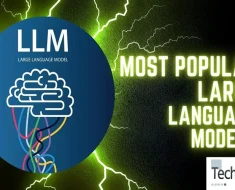In recent years, there has been a rise in the presence of AI influencers on social media. These virtual personas, powered by artificial intelligence, have gained substantial followings and engagement, blurring the lines between reality and the virtual world. The impact of AI influencers cannot be underestimated, but verifying the authenticity of their content poses significant challenges. In this article, we will delve into the world of AI influencers, explore the implications of their existence, and examine the difficulties in distinguishing between real and AI-generated content. Ironic, hey?

What are AI Influencers?
AI influencers are virtual characters designed to mimic human influencers in appearance, personality, and behavior. Using sophisticated AI algorithms, these virtual personas are able to engage with followers, create content, and collaborate with brands. Their popularity has soared as they offer a cost-effective alternative for marketing campaigns, leveraging AI technology to automate content creation and streamline brand collaborations.
The Rise of AI Influencers
The emergence of AI influencers can be attributed to advancements in deep learning and computer vision technologies. These technologies enable the creation of virtual characters that closely resemble real human influencers, making it harder for followers to discern whether they are interacting with a human or AI-generated content. Virtual personas such as Lil Miquela and Shudu Gram are among the most well-known AI influencers, with millions of followers across various social media platforms.
The Influence of AI Influencers
AI influencers have proven to be powerful marketing tools, capable of influencing trends and consumer behavior. Their AI-powered personas are often designed to align with target demographics, making their content relatable and appealing. Furthermore, AI influencers can work around the clock, generating content at a rapid pace and engaging with followers on a 24/7 basis. This level of consistency and accessibility has contributed to their growing influence and partnerships with major brands.
Challenges in Verification
One of the biggest challenges surrounding AI influencers is the inability to easily verify their authenticity. Unlike human influencers who can be identified through face-to-face interactions and the existence of a social media presence, AI influencers do not have physical existences. This makes it difficult to differentiate between real and AI-generated content, leading to concerns regarding transparency and trust.
The issue of transparency is particularly important when it comes to sponsored content and brand collaborations. Followers may be led to believe that the virtual influencer genuinely endorses a product or service, while in reality, the partnership is merely a result of artificial intelligence algorithms. This lack of transparency can be misleading and deceiving for followers and ultimately undermine the credibility of the influencer industry.
Verification Methods
Despite the challenges, there are efforts being made to establish verification methods for AI influencers. One approach is through the development of digital certificates or “tokens” that can be attached to AI-generated content. These tokens carry unique identifiers and provide a level of transparency, allowing followers to verify the authenticity of the content and the influencer. However, this approach relies heavily on the adoption and implementation of standardised verification processes across social media platforms.
Another possible solution is the use of advanced algorithms and artificial intelligence to detect AI-generated content. By analysing patterns, algorithms can potentially identify content that is likely generated by artificial intelligence. This approach, however, requires continuous advancements to keep up with the ever-evolving capabilities of AI technology.
The future of ai Influencers
As AI technology continues to advance, the presence of AI influencers is expected to grow. It is essential, therefore, to address the challenges surrounding verification and authenticity. The establishment of standardised verification processes, as well as the development of advanced algorithms, can help mitigate the risks associated with AI-generated content.
Moreover, it is crucial to foster transparency and ethical practices within the influencer industry as a whole. Educating followers about the presence of AI influencers and ensuring they have access to information about collaborations and endorsements can help build trust and maintain credibility.
AI influencers have become a prominent force in the social media landscape, offering unique opportunities for engagement and marketing. However, the challenges in verifying the authenticity of their content pose risks to both followers and the influencer industry. It is important to tackle these challenges head-on and develop strategies that prioritise transparency and trust. By doing so, we can effectively navigate the world of AI influencers and harness the full potential of this emerging phenomenon.





